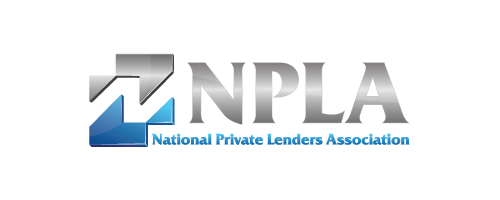Understanding the Importance of Insurance for Private Lenders

Authored by James Martin, VP of Operations at GoDocs
During the recent NPLA meeting, a detailed presentation was given on the importance of insurance for private lenders. The session included guest speakers Ken Quiat, Chris Gilbert, and Mark VanVoorhees from Direct Lenders Insurance Services, who provided expert insights into the complexities of insurance. They highlighted why standard policies may not be sufficient for private lenders and suggested ways to ensure complete coverage.
Essential Insurance Insights for Private Lenders
Insurance goes beyond a generic safety net; it’s about pinpointing the specific risks associated with each deal and tailoring policies accordingly. Several products that lenders should be aware of were highlighted, including:
- Mortgage Bankers Blanket Bond: Customized crime policy protecting a lender’s book of business against issues like employee theft, forgery, and good faith problems.
- Mortgage Company Professional Liability: Covers loan servicing errors, focusing on investor claims defense.
- Forced Placed Insurance: Placed by lenders when a property owner’s insurance is inadequate or canceled.
- Blanket Mortgage Impairment Insurance: Covers situations where borrowers’ insurance falls short, and property restoration is needed.
- Blanket Mortgage Hazard Insurance: Protects against hazards like fire and natural disasters.
- Builders Risk: Essential for properties under construction or renovation.
- Short-Term Rental Insurance: Coverage for properties intended for short-term rental.
- Outsourced Tracking: Transferring monitoring expenses to third parties.
- Cyber Insurance: Protection against cyber threats and data breaches.
Advanced Planning and Tax Efficiency
Lenders must understand the difference between regular earnings and complex financial strategies, which can greatly impact their financial flow. While loans contribute to typical income, exploring methods that can move beyond standard earnings for tax optimization is important. The following mechanisms are tailored to lenders involved in acquiring or disposing of assets, aiming to achieve optimal tax efficiency. These strategies are complex and require consultation with experts before putting them into practice:
- 1031 Exchanges: Deferring capital gains taxes by reinvesting proceeds from the sale of one property into another.
- Deferred Sales Trusts: Managing capital gains taxes through a structured trust.
- Market-Based Structured Settlements: Offering tax-efficient ways to manage gains.
- Collateralization: Using assets to secure loans.
- Private Placement Life Insurance and Captive Management Systems: Exploring tax-efficient insurance solutions.
- Cost Deferral through Financing: Deferring costs through financing arrangements.
The Impact of Correct Insurance
During the meeting’s final segment, Garry Smalley of ElmSure Insurance, a New York City-based real estate insurance agency, discussed typical loan scenarios and suggested suitable insurance types for each situation.
- Vacant Under Renovation: Builders Risk Insurance is crucial when a property is vacant and undergoing renovation. Lenders will want Builders Risk Insurance with — providing coverage for existing structures and renovation. Additionally, theft coverage should be considered, especially during renovations when the property is vulnerable.
- Ground Up: Builders Risk Insurance and theft coverage remain essential for properties being built from the ground up. Some insurance carriers might only cover land in flood zones once certain construction milestones are reached, so addressing this issue is important.
- Tenant Occupied: Different coverage types come into play when a property is tenant-occupied. Dwelling Fire, Lessors Risk, Commercial Package, and Homeowner policies with landlord endorsements offer protection for building, loss of rent, and third-party injuries. Lenders will want a landlord endorsement included with the Homeowner policy because, by nature, homeowner policy requires the homeowner to live on the premises.
Why Pay Attention?
The mere existence of insurance doesn’t guarantee collateral protection. Lenders must ensure that insurance coverage is not only present but also accurately addresses the specific risks at hand.
Potential insurance pitfalls to be cautious of include:
- Homeowner Insurance for Non-Owner Occupied Properties: When dealing with ground-up or fix-and-flip loans, lenders must ensure their broker understands the unique nature of these transactions to ensure correct coverage.
- Coinsurance Issues: Understanding coinsurance clauses in policies to prevent gaps in coverage.
- 30-Day Notice of Cancellation Requirement: Recognizing the importance of this requirement, which might not always be standard.
- Loss Payee Considerations: For fix-and-flip or construction projects, ensuring that loss payee designations protect materials not yet attached to the property is crucial.
- Discrepancies between Certificate and Policy: Being vigilant about discrepancies between initial certificates of insurance and the actual policy terms.
- No Loss of Rental Income Coverage: Acknowledging the significance of loss of rental income coverage, particularly for tenant-occupied properties.
- Wind Exclusions: Understanding the implications of wind exclusions, especially in states prone to hurricanes. Being mindful that coverage may cease once a storm or hurricane is officially named, as this exclusion is often factored in.
Recommendations and Conclusion
To conclude the session, attendees were left with valuable takeaways:
- Never request homeowners insurance for lending purposes.
- Ensure coverage for different types of flood zones, particularly flood-prone areas
- Emphasize theft coverage for renovation and ground-up loans.
- Regularly review insurance during extensions of short-term loans.
- Tailor insurance guides to specific loan types, accounting for varying risks.
In the ever-changing landscape of private lending, understanding insurance nuances is essential. With expert insights from the NPLA meeting, lenders can approach their ventures with a more informed and secure outlook. As highlighted by the speakers, proper insurance coverage is not just a formality but a critical aspect of safeguarding investments and maintaining financial stability.
Author Bio:
GoDocs is an innovative leader in automated loan document generation, transforming the commercial lending process. With a fully cloud-based platform, GoDocs provides a flexible digital solution that makes commercial loans more cost-effective to document and faster to close, all while maintaining compliance in all 50 states. GoDocs is a Corporate Member of the NPLA.
